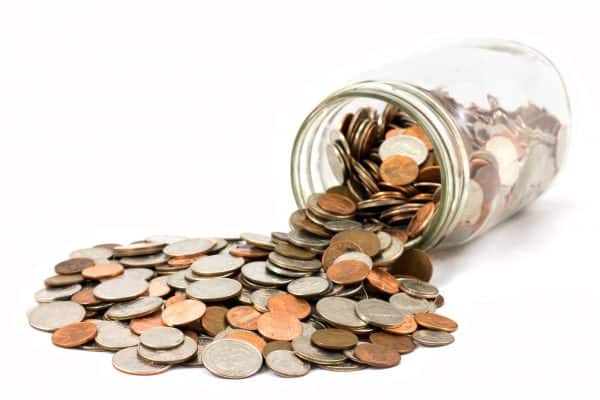In this day and age, saying you eat in season is a bit like the saying “well, it’s 5 o’ clock somewhere!” Somewhere around the world, it’ll be the right seasonal conditions to grow whatever produce you’re after. Even if it isn’t, most produce will grow just fine in a simulated environment like a greenhouse with a little extra TLC.
So is there actually any benefit to eating in season, either for your health, the quality of the food you eat, or your pocket?
Is it better for your health to eat in season?
There are plenty of arguments for “buying British” as far as you can, not least of which is how much it helps our economy to buy from local suppliers. It’s definitely better for them, but is it better for you?
In short, the answer is yes, it probably is. The main argument for the health benefits of eating in season is that locally sourced seasonal produce is more nutritious than imported versions because of its fresher.
When fruits and vegetables are supplied according to their natural seasons, they can be left in the field to ripen for longer before they’re harvested for distribution. As a rule, the riper an item of produce is, the more nutritious it is. When produce is sourced from abroad and supplied out of season, it could be as much as 3x less nutritious simply because it has to be picked before it reaches “peak ripeness” to make sure it’ll make it to the supermarket shelves before it spoils.
Food that needs to be imported in order to keep our shelves stocked may also be treated with additives and preservatives to keep them from spoiling for a bit longer. Regulations that restrict the levels of additives permitted in food in the UK ensure they’re safe to eat, but some people still prefer to avoid them if they can. There have been cases in the past where scientific advances have revealed that chemicals that were once regarded as safe do actually to pose a health risk of some sort. Although science is much more reliable than it once was, some people simply prefer not to take the risk.
Does food taste better when it’s in season?
You may have noticed that the quality of fruit and veg changes throughout the year, and it’s better when you eat in season. Fruit and veg that’s in season is bigger and juicier (if it’s a juicy fruit or vegetable!) for the same reason it’s also more nutritious – it has longer to ripen in the field before it needs to be harvested for distribution, meaning it has time to get bigger! If you ever shop at a farmer’s market, you’ll probably have noticed that the fruit and veg on offer is much larger than you can get at the supermarket – and this is why!
Whether it actually tastes better or not is down to how discerning your taste buds are. We suggest you try for yourself and see if you can tell the difference. We’re reliably informed that seasonal produce has much more flavour than its out of season counterparts. Tomatoes grown in season are supposed to be particularly good in comparison.
Is it cheaper to buy fruits and vegetables when they’re in season vs. out of season?
There are plenty of reasons it’s logical for seasonal fruit and vegetables to be cheaper than their out of season counterparts.
The reduced cost of getting seasonal produce from the field to our shelves is a big factor, as less miles to travel and less modes of transport means less money spent! It’s also much easier to grow fruit and veg when it’s in season. In some cases plants can pretty much be left alone until it’s time to harvest, so much less labor is needed to nurture a crop.
The overall reduction in effort required to produce and distribute seasonal food should make it a lot cheaper by the time it hits the supermarket shelves. In reality, though prices are much more level throughout the year and don’t tend to fluctuate based on the season. That’s not to say they don’t change at all, it’s just more likely to depend on other factors, like the price of fuel used to by vehicles that transport produce, and whether there have been any weather or pest issues affecting crops.
Where you can make savings on seasonal fruit and vegetables, though, is by buying your fresh produce from a farmer’s market or street stall if you have one nearby. Research by This Is Money claimed you can save up to 32% on your fruit and veg by buying it from local markets instead of supermarkets. That’s a saving that’s definitely not to be sniffed at!
How can you tell if something’s in season when you buy it, especially if the price is the same?
There are plenty of calendars that you can use to guide you as to what’s in season and what isn’t. Some will even guide you on when to plant and when to harvest, if you fancy turning fruit and veg farmer yourself.
However, supermarkets will often still sell imported produce that’s been grown off-season to make sure they have a big enough supply to meet demand. Most shops now display the country of origin on the labels and packaging of their produce, which can help. By knowing where something came from, you can work out what kind of quality you should be able to expect from any particular packet. Then, if it’s important to you to buy local produce, you know that’s what you’re getting.
Another sure-fire way to do your best to eat in season is to head down to your local farmer’s market or farm shop. As they only use local suppliers, it’s unlikely that they’ll have anything that’s out of season available. The stall owners and shop staff may also be a bit more knowledgeable about the products they stock, too, which can be useful if you need something specific or are keen to expand your seasonal horizons and try some new things!
Do you try to stick to what’s in season when you buy fruit and veg? Let us know in the comments below!




















